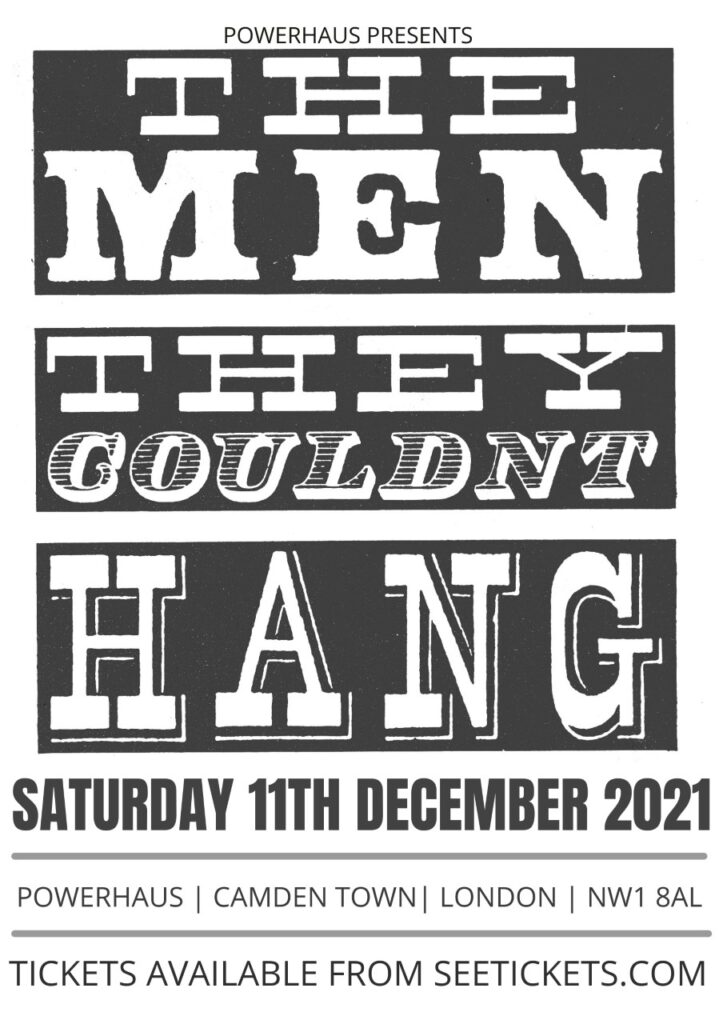Greetings friends. This is just a quick update to say that after some reflection we have decided that we will honour all TMTCH gigs that were booked or in process of being booked before the sad passing of Cush. There’s a full list at the bottom. Not only will this give us all the chance to come together but it will give us and you all a chance to see whether we still have the magic to keep going beyond that. Rest assured, we won’t be going through the motions. We can’t replace Cush but we can step up to present something different but hopefully still powerful, exciting and uniquely TMTCH. We’ll see you out there!
The Men They Couldn’t Hang + special guest Band of The Underhand. The band came together in 1984 to perform at the alternative music festival in Camden town alongside the legendary Pogues and the Boot Hill Foot-Tappers. Paul Simmonds, Philip ‘Swill’ Odgers and his brother Jon, veterans of the Southampton based pop-punk band ‘Catch 22’, met Pogues roadie Stefan Cush whilst busking in Shepherds Bush in London. Their early line up was Stefan Cush (Vocals, Guitar), Paul Simmonds (Guitar, Bouzouki, and Keyboards), Philip Odgers (Vocals, Guitar, Tin Whistle, and Melodica), Jon Odgers (Drums, Percussion) and Shanne Bradley (Bass, Flute).
Championed by the late John Peel their first single, a cover of Eric Bogle’s ‘Green Fields of France’ (1984), became a big hit on the UK Indie charts and a staple of Peel’s festive 50. Their first album, “Night of a Thousand Candles”, was released in 1985. It includes the singles ‘Ironmasters’ and ‘Greenback Dollar’. Signing for MCA the following year, theyrecorded their second album, “How Green Is the Valley”, produced by Mick Glossop. Included on this album are thesingles ‘Gold Rush’, ‘Shirt of Blue’ and ‘Ghosts of Cable Street’.
In 1987 Shanne Bradley left the band and was replaced by Ricky McGuire, famous for touring with punk legends theUK Subs at the tender age of 17. With their third release in 1988, “Waiting for Bonaparte”, The Men They Couldn’t Hang were starting to achieve recognition across Europe for their political comment and raucous live shows.

